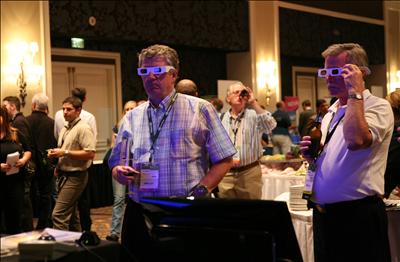CUDA fooled me
So, aside from a dummy Fermi board, GTC 2009 was almost all about the software, and practically devoid of any real or exciting hardware. This year it was all about personal supercomputery, mathematical wizardry and programmable cool. C is for cool, C is for Cuda, gushed NVIDIA until we all turned green in the face.
As for AMD's accusations of proprietary lock-ins and unfair cheats and advantages, NVIDIA used GTC to emphatically deny everything, claiming they were all men of valour and were simply pushing the industry forward. "If not us, then who? And if not now, then when?" was the relentless battle-cry from the little green men, who reminded press claiming NVIDIA was forsaking its gaming roots that AMD was hardly clamouring to take on the role of Brother in Arms to poor, misunderstood game developers, whose PC gaming medium was choking to death.
Death of a Games-man
In fact, Nvidia claimed that if it wasn't for its own actions, PC gaming would be well on its way to dying a horrible in-console-able death. PhysX, NVIDIA told us, was just one example of what it was doing to push gaming forward, to make games better, to innovate.

Yes, so it would disable itself on an ATI card, but that was just to save developers precious time answering phone calls from irate gamers who had inadvertently screwed up their systems by playing in "untested configurations," pleaded NVIDIA, polishing its Halo.
Of course, not everybody was convinced that NVIDIA had simply swallowed its Resident Evil and was slowing down frame rates left right and centre with PhysX for the good of mankind, but compared to AMD's non actions, the arguments were rather a lot more compelling this time around.









